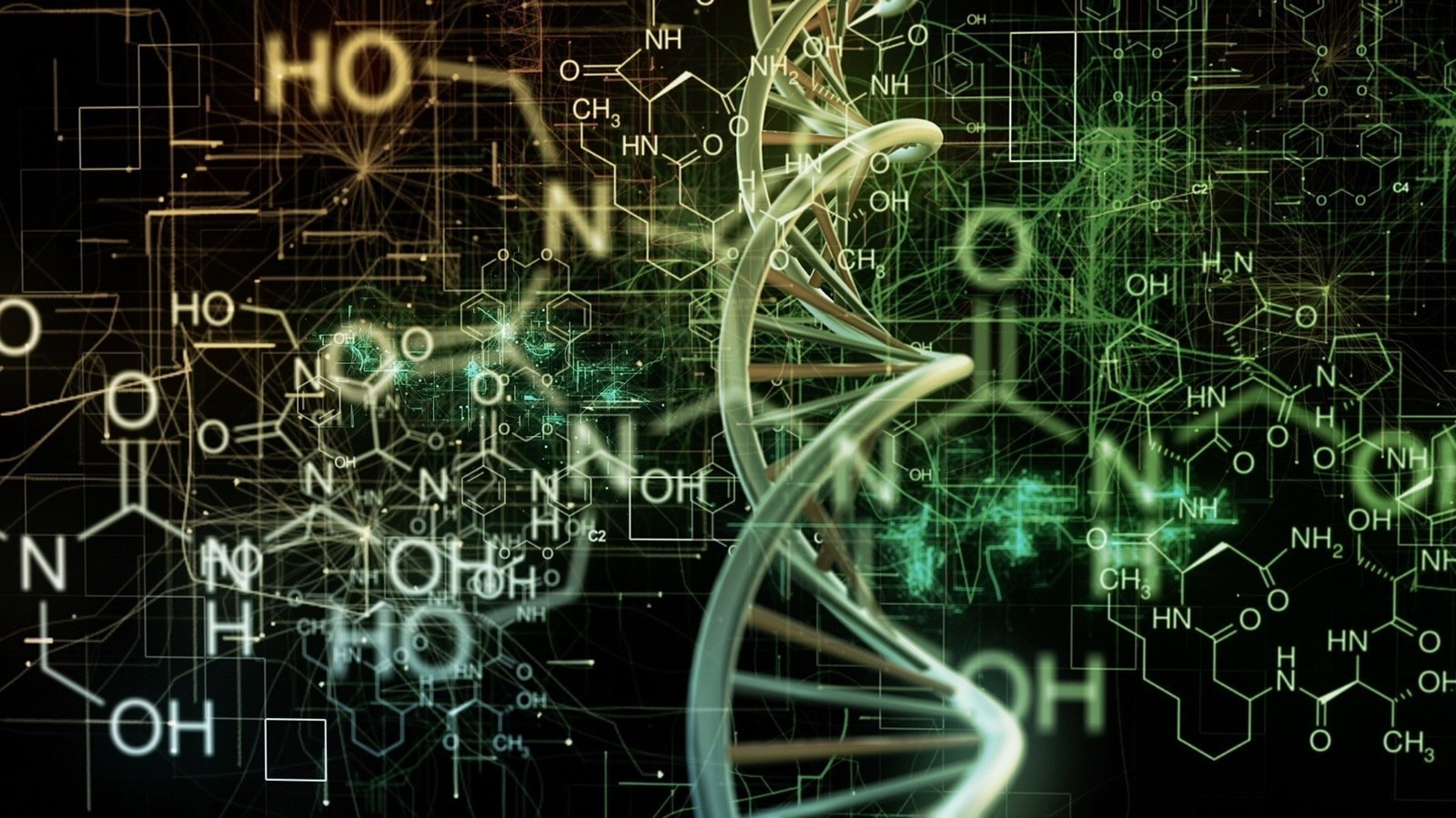Welcome to the world of tomorrow! The field of science is constantly evolving, with groundbreaking research and discoveries being made every day. From exploring the depths of the universe to unlocking the mysteries of the human brain, scientists and researchers are pushing the boundaries of what we thought was possible. In this article, we will delve into the latest cutting-edge research that will surely blow your mind! So, buckle up and get ready for an exciting journey into the science of tomorrow!
Unraveling the Secrets of the Universe
Table of Contents
- 0.1 Unraveling the Secrets of the Universe
- 0.2 Revolutionizing Healthcare with Biotechnology
- 0.3 Unlocking the Mysteries of the Human Brain
- 0.4 Exploring the Potential of Quantum Computing
- 0.5 Harnessing the Power of Nanotechnology
- 0.6 Innovations in Renewable Energy
- 0.7 Artificial Intelligence and Automation
- 0.8 Advances in Biotechnology
- 0.9 The Future of Healthcare: Precision Medicine
- 0.10 The Mind-Body Connection: Exploring Neurobiology
- 1 Conclusion:
As humans, we have always been fascinated by the vastness of the universe. From distant galaxies to the tiniest particles, there is still so much we don’t know. However, thanks to recent advancements in technology and scientific research, we are getting closer to unraveling the secrets of the universe.
One of the most exciting areas of research is in the field of astronomy. Astronomers are using powerful telescopes and advanced imaging techniques to peer into the deepest reaches of space, capturing breathtaking images of distant galaxies, stars, and planets. They are also studying cosmic phenomena such as black holes, dark matter, and dark energy, which make up a significant portion of the universe but remain largely mysterious.
Recent research has also revealed the existence of exoplanets – planets that orbit stars outside our solar system. With the help of telescopes such as the Kepler Space Telescope and the Transiting Exoplanet Survey Satellite (TESS), astronomers have discovered thousands of exoplanets, some of which are located in the habitable zones of their stars, raising the possibility of finding extraterrestrial life.
Revolutionizing Healthcare with Biotechnology
Advancements in biotechnology are transforming the field of healthcare, offering new ways to diagnose, treat, and prevent diseases. From gene editing to personalized medicine, biotechnology is revolutionizing the way we approach healthcare.
Gene editing, specifically using a revolutionary tool called CRISPR-Cas9, has garnered significant attention in recent years. This powerful technology allows scientists to precisely edit DNA, opening up the potential to cure genetic diseases, eradicate inherited conditions, and even enhance human traits. However, ethical concerns and debates surrounding the use of gene editing continue to be topics of discussion among researchers, policymakers, and the public.
Personalized medicine, on the other hand, takes into account an individual’s genetic makeup, lifestyle, and environmental factors to tailor medical treatments. With advancements in genomic sequencing and data analytics, doctors can now provide more targeted and effective treatments for various diseases, including cancer, cardiovascular conditions, and rare genetic disorders.
Unlocking the Mysteries of the Human Brain
The human brain is often referred to as the last frontier of science, with its complex structure and functions still largely unknown. However, recent research has been shedding new light on the mysteries of the brain, offering insights into cognition, consciousness, and mental health.
Neuroscientists are using advanced imaging techniques such as functional magnetic resonance imaging (fMRI) and electroencephalography (EEG) to study the brain in unprecedented detail. They are uncovering the neural mechanisms underlying cognition, emotion, and behavior, and how these processes are affected by various factors such as aging, stress, and neurodegenerative diseases.
Furthermore, research in the field of artificial intelligence (AI) and machine learning is also playing a crucial role in unlocking the mysteries of the brain. AI algorithms are being used to analyze vast amounts of brain data, leading to discoveries about brain connectivity, neural networks, and the development of brain-computer interfaces that could potentially help individuals with paralysis or other disabilities.
Exploring the Potential of Quantum Computing
Quantum computing is a cutting-edge area of research that has the potential to revolutionize computing as we know it. Traditional computers use bits that represent information as either 0s or 1s, while quantum computers use quantum bits or “qubits” that can represent information as both 0 and 1 simultaneously, thanks to a phenomenon called superposition.
This unique property of qubits allows quantum computers to process information in parallel, making them exponentially more powerful than traditional computers for certain calculations. Quantum computing has the potential to solve complex problems in fields such as cryptography, drug discovery, climate modeling, and optimization, which are currently beyond the capabilities of classical computers.
However, quantum computing is still in its infancy, with significant challenges to overcome, such as maintaining the delicate state of qubits and minimizing errors caused by quantum decoherence. Nonetheless, researchers and tech companies are making significant progress in this field, and the future possibilities of quantum computing are truly mind-boggling.
Harnessing the Power of Nanotechnology
Nanotechnology, the science of manipulating matter at the nanoscale, is another cutting-edge field that has the potential to transform various industries, from electronics to healthcare. Nanomaterials and nanodevices are being developed to possess unique properties that can be harnessed for a wide range of applications.
In the field of electronics, researchers are exploring the use of nanomaterials such as graphene, a one-atom-thick sheet of carbon, for ultrafast and ultra-small electronic devices. Graphene’s remarkable properties, such as its high electrical conductivity, flexibility, and strength, make it an ideal candidate for next-generation electronic components, including transistors, sensors, and batteries.
In healthcare, nanotechnology is showing great promise in areas such as drug delivery, cancer treatment, and diagnostics. Nanoparticles can be designed to target specific cells or tissues in the body, delivering drugs directly to the site of disease and minimizing side effects. Nanoscale sensors and imaging techniques are also being developed for early detection and monitoring of diseases, such as cancer and neurodegenerative disorders.
Innovations in Renewable Energy
With the growing concern over climate change and the need for sustainable energy sources, research into renewable energy has been at the forefront of scientific advancements. Cutting-edge research is being conducted in various areas of renewable energy, offering promising solutions for a greener future.
Solar energy is a rapidly evolving field, with advancements in solar cells and photovoltaic technology improving the efficiency and affordability of solar panels. Researchers are also exploring new materials, such as perovskite, for more efficient solar cells that can be integrated into a wide range of applications, from building facades to wearable devices.
Wind energy is another area of focus, with innovations in wind turbine design and materials leading to more efficient and cost-effective wind power generation. Offshore wind farms, utilizing floating platforms and advanced turbine designs, are being explored for their potential to generate vast amounts of clean energy from the abundant wind resources in the oceans.
Additionally, research is being conducted in areas such as bioenergy, geothermal energy, and energy storage, with the aim of developing sustainable and scalable solutions to meet the world’s growing energy demands while reducing greenhouse gas emissions.
Artificial Intelligence and Automation
Artificial Intelligence (AI) and automation are transforming industries and societies, with advancements in machine learning, robotics, and data analytics leading to new possibilities and challenges.
Machine learning algorithms are being used to analyze vast amounts of data, leading to breakthroughs in areas such as natural language processing, computer vision, and predictive analytics. AI-powered technologies are being integrated into various industries, such as healthcare, finance, transportation, and manufacturing, to automate processes, improve efficiency, and make data-driven decisions.
In the field of robotics, researchers are developing advanced robots with the ability to perform complex tasks autonomously. From autonomous vehicles and drones to humanoid robots, the potential applications of robotics are vast and varied. Robots are being used in industries such as healthcare, agriculture, and logistics, offering solutions to labor-intensive and hazardous tasks.
However, the rapid advancement of AI and automation also presents ethical and societal challenges, such as concerns about job displacement, biases in algorithms, and data privacy. As research in AI and automation continues to push the boundaries of what’s possible, it’s important to consider the implications and ensure responsible and ethical deployment of these technologies.
Advances in Biotechnology
Biotechnology is a cutting-edge field that involves the use of living organisms, cells, or biological processes to develop innovative products and solutions in various industries, from healthcare to agriculture and beyond.
In healthcare, biotechnology has led to groundbreaking advancements in areas such as gene editing, regenerative medicine, and personalized medicine. CRISPR-Cas9, a revolutionary gene editing technology, has the potential to cure genetic diseases by precisely modifying genes in living organisms. Stem cell research is paving the way for regenerative medicine, with the ability to repair and regenerate damaged tissues and organs. Personalized medicine, based on an individual’s genetic makeup, is becoming a reality, offering tailored treatments and therapies for better health outcomes.
In agriculture, biotechnology is being used to develop genetically modified organisms (GMOs) with improved traits, such as resistance to pests, diseases, and environmental conditions. This has the potential to increase crop yields, reduce the use of harmful pesticides, and improve food security.
Furthermore, biotechnology is also being explored for environmental applications, such as bioremediation, biofuels, and waste management. Bioremediation uses living organisms to clean up pollutants in soil and water, while biofuels offer a renewable and sustainable alternative to fossil fuels. Biotechnology is also being used to develop innovative solutions for waste management, such as using microorganisms to break down and recycle waste materials.
The Future of Healthcare: Precision Medicine

Precision medicine is an emerging field of healthcare that aims to deliver personalized medical treatments based on an individual’s genetic makeup, lifestyle, and environmental factors. It represents a shift from the traditional one-size-fits-all approach to healthcare, towards a more tailored and targeted approach that takes into account an individual’s unique characteristics.
Advancements in genomic sequencing, data analytics, and molecular diagnostics are driving the progress of precision medicine. Genomic sequencing allows for the decoding of an individual’s DNA, providing valuable information about their genetic predispositions, risk factors, and potential response to treatments. Data analytics and machine learning algorithms can analyze vast amounts of genomic and clinical data, providing insights for personalized treatment plans.
Precision medicine has the potential to revolutionize the diagnosis, treatment, and prevention of diseases, such as cancer, cardiovascular diseases, and genetic disorders. It enables physicians to provide more accurate and effective treatments, reduce adverse effects, and improve patient outcomes. With ongoing research and advancements in this field, the future of healthcare holds great promise for precision medicine.
The Mind-Body Connection: Exploring Neurobiology
The field of neurobiology is uncovering the intricate relationship between the mind and body, shedding light on how our thoughts, emotions, and behaviors are connected to our brain and nervous system.
Research in neurobiology has revealed fascinating insights into how the brain processes information, regulates emotions, and controls our bodily functions. Advancements in neuroimaging techniques, such as functional MRI (fMRI) and electroencephalography (EEG), have allowed scientists to study the brain in real-time and understand its complex workings.
Neurobiology research has also shown how the mind and body interact in health and disease. Studies have shown the impact of stress, emotions, and lifestyle factors on our physical well-being. For example, chronic stress has been linked to various health conditions, including cardiovascular diseases, mental health disorders, and autoimmune diseases. Understanding the mind-body connection can lead to innovative interventions and therapies for improving overall health and well-being.
Furthermore, neurobiology research has led to advancements in neuroprosthetics, brain-computer interfaces, and neurofeedback, offering new possibilities for treating neurological disorders and enhancing human capabilities. These cutting-edge technologies hold immense potential for improving the quality of life for individuals with conditions such as paralysis, stroke, and neurodegenerative diseases.
Read More:The Future is Here: NFTs are Transforming Science and Research in 2023
Conclusion:
The science of tomorrow is a rapidly evolving landscape, with groundbreaking research and advancements that have the potential to revolutionize various aspects of our lives. From quantum computing and nanotechnology to AI and automation, biotechnology, precision medicine, and neurobiology, these cutting-edge fields are pushing the boundaries of what’s possible and shaping the future of science, technology, and society.
As we continue to unlock the mysteries of the universe, harness the power of technology, and understand the complexities of the human body and mind, the possibilities are limitless. The science of tomorrow promises to bring about revolutionary changes that will shape our world in unimaginable ways. As researchers and scientists continue to push the boundaries of knowledge and innovation, we can eagerly anticipate the discoveries and advancements that await us in the future.
In conclusion, the science of tomorrow is not just a distant vision, but a reality that is unfolding before our eyes. It is a world of endless possibilities, where breakthroughs and advancements are reshaping our understanding of the world and transforming various industries and aspects of our daily lives. As we look ahead, it is essential to embrace the potential of cutting-edge research, while also considering the ethical and societal implications. The science of tomorrow is an exciting journey that continues to unfold, and we can eagerly anticipate the revolutionary discoveries and advancements that lie ahead. Stay tuned for more mind-blowing breakthroughs that will shape the future of science and technology!




